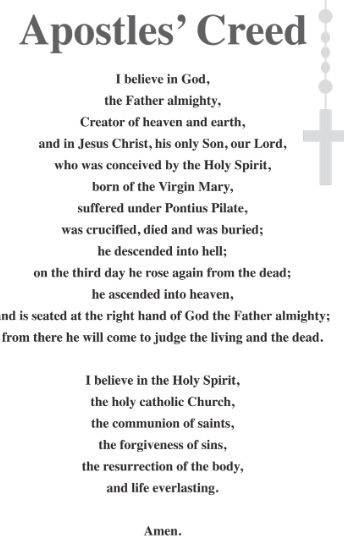The Apostles’ Creed is a fundamental prayer in the Catholic faith. It is recited by Catholics around the world as a statement of their beliefs and values. Let’s take a closer look at the meaning behind this ancient prayer.
Origin and Importance
The Apostles’ Creed dates back to the early days of Christianity. It is believed to have been composed by the Apostles themselves, outlining the core doctrines of the Christian faith. It serves as a summary of the beliefs that all Catholics profess.
The Creed is divided into three sections: beliefs in God the Father, Son, and Holy Spirit. Each section highlights different aspects of the Catholic faith and emphasizes the importance of the Trinity in Catholic theology.
Beliefs in God the Father
The first part of the Creed affirms belief in God the Father, the creator of heaven and earth. This section emphasizes God’s role as the ultimate authority and source of all life. It reminds Catholics of their dependence on God for guidance and protection.
Beliefs in Jesus Christ
The second part of the Creed focuses on Jesus Christ, the Son of God who came to Earth to save humanity. It highlights Jesus’ birth, death, and resurrection as central events in Christian history. Belief in Jesus Christ as the savior is a cornerstone of Catholic faith.
Beliefs in the Holy Spirit
The final section of the Creed addresses the role of the Holy Spirit in the life of believers. The Holy Spirit is seen as the source of strength and guidance for Catholics, leading them in their journey of faith. Belief in the Holy Spirit reflects the importance of spiritual growth and transformation in the Catholic tradition.
Implications for Catholics
By reciting the Apostles’ Creed, Catholics affirm their commitment to the core beliefs of the Christian faith. This prayer serves as a reminder of the values and teachings that shape their lives. It also unites Catholics around the world in their shared beliefs and practices.
In conclusion, the Apostles’ Creed is a powerful statement of Catholic faith and identity. By unpacking its meaning and significance, Catholics can deepen their understanding of the beliefs that shape their lives and guide their journey of faith.

